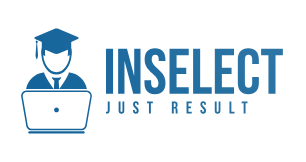The Silent Problem in Scholarship Selection
Imagine you’re 19 years old. You’ve worked hard, often in silence. You've grown up in a region where opportunities are scarce, and the idea of studying abroad feels more like a dream than a plan.

Now comes your big shot — a scholarship application. You’re asked to write a motivation letter, a single page that must explain your story, your ambitions, and your soul. And you’re told:
This letter is your voice.”
But it’s not. Because when the stakes are this high, and the rules this old, candidates will do what it takes to sound “right.” To fit the mold. To win.
Ask scholarship selection committee members how often they here that a certain part of scholarships were allocated for candidates who don't actually need them. You will be surprised with their answer.
The Rise of Artificial Authenticity
We live in a time when access to generative AI is easy but not equal. In seconds, a well-connected applicant can ask ChatGPT to write a motivation letter that’s structured, polished, and persuasive. Some even run their drafts through AI-powered “authenticity checkers” to make sure they sound just vulnerable enough. But not every student has this advantage.
Many brilliant candidates (especially those from remote areas, under-resourced schools, or first-generation academic families) may not even know tools like this exist. Their essays are genuine, yes, but often less polished, less “formally appealing.” The result?
Applications that look better may not always be better — just better resourced. And that’s not fairness. That’s formatting.
A Fairer Lens: The Role of Asynchronous Interviews
That’s why more scholarship providers are beginning to ask: “How do we actually hear the candidate’s voice?”
One answer? Asynchronous, structured interviews. We’re not talking about high-pressure Zoom calls. We’re talking about:
No scheduling. No interview panels. Just a chance to be heard.
When supported by ethical AI tools like INSELECT, these interviews generate structured evaluation reports, helping reviewers understand not just what the candidate says — but how they say it, and how it aligns with their written application.
Optional Doesn’t Mean Optional Impact
These interviews don’t replace the application — they reveal the human behind it. And even when optional, they bring powerful benefits:
And, perhaps most tellingly: Those who volunteer to speak on camera are often the most genuine — because they’re not afraid of being real.
Reimagining Fairness in the Age of AI
Scholarship foundations are tasked with finding potential, not perfection. But in a world where synthetic writing is easily available to some — and inaccessible to others — the challenge of fairly assessing applicants is greater than ever.
Technology can be part of the problem. But it can also be part of the solution.
Structured interviews — used thoughtfully — don’t just assess competence. They restore balance. They reveal character. And in many cases, they let the quietest applicants finally be heard.
This letter is your voice.”
But it’s not. Because when the stakes are this high, and the rules this old, candidates will do what it takes to sound “right.” To fit the mold. To win.
Ask scholarship selection committee members how often they here that a certain part of scholarships were allocated for candidates who don't actually need them. You will be surprised with their answer.
The Rise of Artificial Authenticity
We live in a time when access to generative AI is easy but not equal. In seconds, a well-connected applicant can ask ChatGPT to write a motivation letter that’s structured, polished, and persuasive. Some even run their drafts through AI-powered “authenticity checkers” to make sure they sound just vulnerable enough. But not every student has this advantage.
Many brilliant candidates (especially those from remote areas, under-resourced schools, or first-generation academic families) may not even know tools like this exist. Their essays are genuine, yes, but often less polished, less “formally appealing.” The result?
Applications that look better may not always be better — just better resourced. And that’s not fairness. That’s formatting.
A Fairer Lens: The Role of Asynchronous Interviews
That’s why more scholarship providers are beginning to ask: “How do we actually hear the candidate’s voice?”
One answer? Asynchronous, structured interviews. We’re not talking about high-pressure Zoom calls. We’re talking about:
- A respectful, self-paced video experience
- Where candidates answer a small set of thoughtful questions
- In their own voice, language, and context
No scheduling. No interview panels. Just a chance to be heard.
When supported by ethical AI tools like INSELECT, these interviews generate structured evaluation reports, helping reviewers understand not just what the candidate says — but how they say it, and how it aligns with their written application.
Optional Doesn’t Mean Optional Impact
These interviews don’t replace the application — they reveal the human behind it. And even when optional, they bring powerful benefits:
- They allow reviewers to compare motivation letters with live responses, identifying coherence or discrepancies.
- They offer a bias-resistant, structured assessment of key values like motivation, resilience, and sincerity.
- They give candidates who might otherwise be overlooked — because they’re not AI-fluent — a chance to stand out for all the right reasons.
And, perhaps most tellingly: Those who volunteer to speak on camera are often the most genuine — because they’re not afraid of being real.
Reimagining Fairness in the Age of AI
Scholarship foundations are tasked with finding potential, not perfection. But in a world where synthetic writing is easily available to some — and inaccessible to others — the challenge of fairly assessing applicants is greater than ever.
Technology can be part of the problem. But it can also be part of the solution.
Structured interviews — used thoughtfully — don’t just assess competence. They restore balance. They reveal character. And in many cases, they let the quietest applicants finally be heard.
